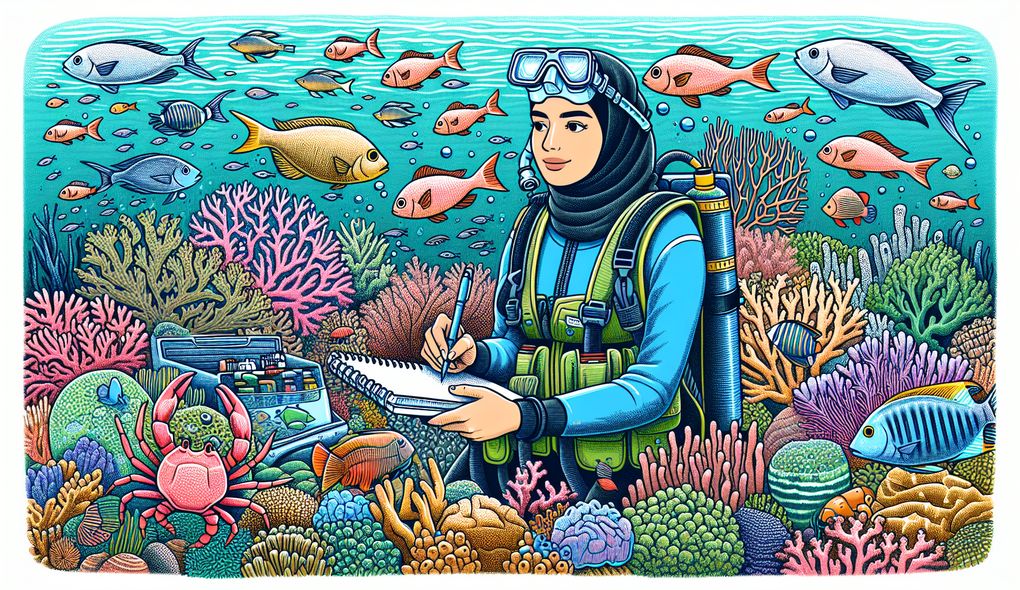Tell us about a time when you conducted an ecological risk assessment and developed strategies to mitigate adverse effects.
SENIOR LEVEL

Sample answer to the question:
In my previous role as a Fisheries Biologist, I conducted an ecological risk assessment for a river ecosystem that was potentially impacted by a nearby industrial site. I carefully analyzed the environmental data, including water quality, sediment composition, and fish species diversity, to determine potential risks to the ecosystem. After assessing the risks, I developed strategies to mitigate adverse effects, such as implementing pollution control measures, monitoring water quality parameters regularly, and establishing a fish relocation program to protect sensitive species. These strategies were implemented in collaboration with local environmental agencies and community stakeholders. The mitigation efforts resulted in a significant reduction of environmental impacts, preserving the health and biodiversity of the river ecosystem.
Here is a more solid answer:
As a Senior Fisheries Biologist with over 8 years of experience, I conducted an ecological risk assessment for a coastal estuary that was threatened by the construction of a new port. To assess the potential risks, I deployed remote underwater cameras to monitor fish behavior and population patterns. Additionally, I collected water and sediment samples to analyze pollutant levels and their potential impacts on aquatic organisms. Using advanced population modeling techniques, I predicted the potential effects of the port's construction on fish populations. Based on these findings, I developed strategies to mitigate adverse effects by proposing buffer zones, implementing sediment control measures, and creating artificial spawning habitats. I collaborated with regulatory agencies, local stakeholders, and port developers to ensure the implementation of these strategies. The successful execution of these mitigation measures played a crucial role in minimizing the adverse effects of the port's construction on the coastal estuary's aquatic ecosystem.
Why is this a more solid answer?
The solid answer provides more specific details about the candidate's advanced knowledge in aquatic ecosystems and fish behavior, expertise in population modeling and data analysis, and their ability to work independently and in remote locations. It includes information about the candidate's use of remote underwater cameras, collection of water and sediment samples, and advanced population modeling techniques. However, it could further improve by including specific information about the candidate's leadership and team management skills, as well as their use of excellent communication and interpersonal skills.
An example of a exceptional answer:
In my role as a Senior Fisheries Biologist, I conducted an ecological risk assessment for a river system threatened by an upstream chemical spill. Recognizing the potential adverse effects, I assembled a multidisciplinary team of biologists, chemists, and toxicologists to comprehensively assess the risks to aquatic life. We conducted extensive sampling and testing, analyzing water, sediment, and tissue samples for contaminants and their impacts on fish populations and the overall ecosystem. Utilizing population modeling, we predicted the long-term effects of the spill and developed strategies to mitigate adverse effects. These included implementing immediate cleanup measures, establishing a monitoring program to track the recovery of the ecosystem, and collaborating with regulatory agencies to enforce stricter pollution control regulations. Through effective communication with stakeholders, including the public and policymakers, we emphasized the importance of proactive measures for ecological conservation. As a result, we successfully minimized the long-term adverse effects of the chemical spill and restored the health and sustainability of the river ecosystem.
Why is this an exceptional answer?
The exceptional answer goes above and beyond by providing a more comprehensive and detailed account of the candidate's experience conducting an ecological risk assessment and developing mitigation strategies. It includes information about assembling a multidisciplinary team, conducting extensive sampling and testing, utilizing population modeling, and implementing immediate cleanup measures. It also emphasizes the candidate's excellent communication and interpersonal skills in engaging stakeholders and advocating for proactive ecological conservation. The answer demonstrates the candidate's strong leadership and team management skills, as well as their ability to work independently and in remote locations. However, it could further improve by incorporating specific information about the candidate's collaboration with governmental and environmental organizations, which is mentioned in the job description.
How to prepare for this question:
- Familiarize yourself with advanced techniques in population modeling and data analysis, as they are crucial in conducting ecological risk assessments.
- Stay updated on the latest research and advancements in aquatic ecosystems and fish behavior to showcase your advanced knowledge in these areas.
- Highlight your experience in conducting fieldwork and working in remote locations, as it demonstrates your ability to independently carry out ecological assessments.
- Practice explaining complex ecological concepts in a clear and concise manner to effectively communicate with stakeholders and policymakers.
- Be prepared to provide specific examples from past projects or research where you have successfully developed and implemented strategies to mitigate adverse ecological effects.
What are interviewers evaluating with this question?
- Advanced knowledge of aquatic ecosystems and fish behavior
- Expertise in population modeling and data analysis
- Ability to work independently and in remote locations

